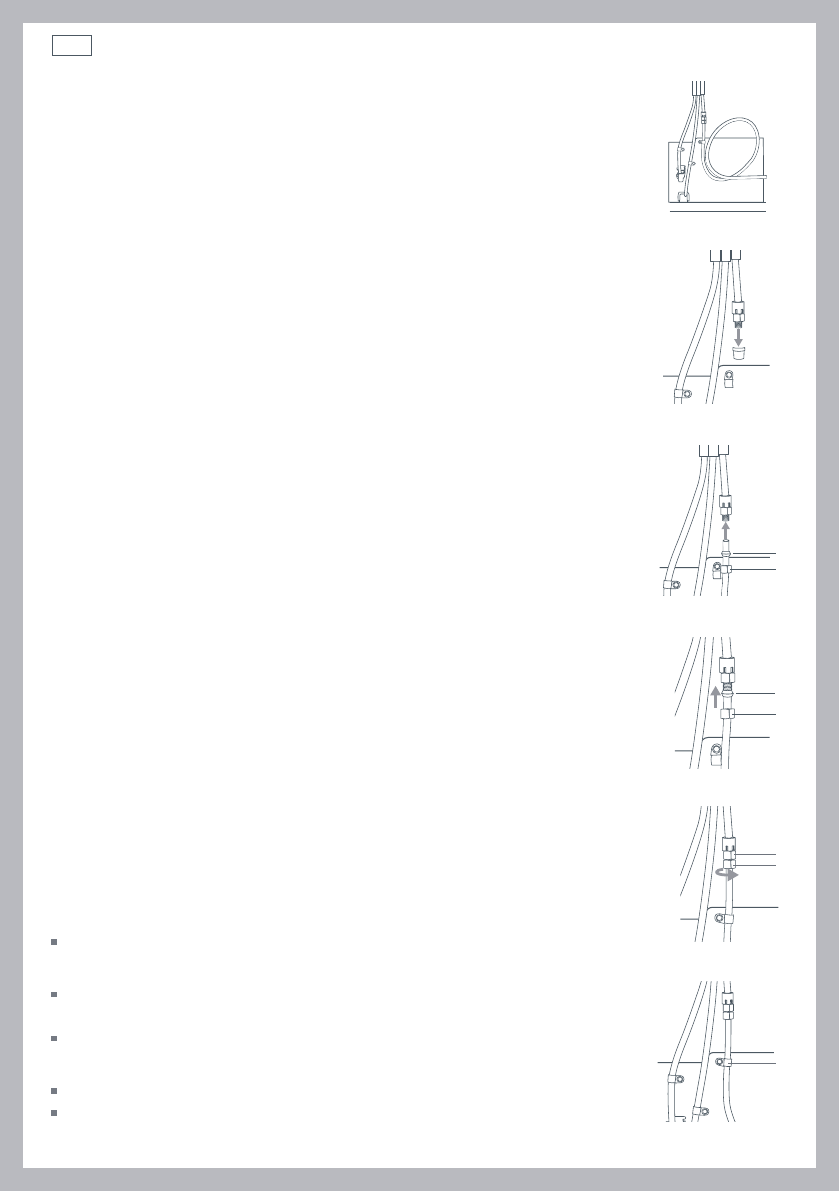
10
Water connection
Note: ensure refrigerator is not plugged into a power supply.
1
Create service loop with copper tubing (minimum 2’ (610 mm) diameter).
Avoid kinks in the copper tubing when bending the service loop. Do not use
plastic tubing.
2
Remove plastic cap from water valve inlet port.
3
Place brass nut (
a
) and sleeve (
b
) on copper tube end as illustrated.
Reminder: Do not use an old sleeve. The nut and sleeve are provided in the
Use and Care packet.
4
Place end of copper tubing into water valve inlet port. Shape tubing slightly
– do not kink – so that tubing feeds straight into inlet port.
5
Slide brass nut (
a
) over sleeve (
b
) and screw nut into inlet port.
Place adjustable wrench on nut (
1
) attached to plastic waterline and
maintain position. Using second adjustable wrench, turn the lower nut (
2
)
counterclockwise and fully tighten while holding the upper nut in place.
Important!
Do not over-tighten. Cross threading may occur.
6
Pull on tubing to confirm connection is secure. Connect tubing to frame
with water tubing clamp (
c
) and turn on water supply. Check for leaks and
correct if necessary. Continue to observe the water supply connection for
two to three hours prior to moving the refrigerator to its permanent location.
7
Monitor water connection for 24 hours.
Correct leaks, if necessary.
Handle removal
Handles are installed at the factory.
Tools needed:
⁄”
(4
mm) Allen wrench
To remove:
Remove cap-screw from handle mounting post using ⁄” (4 mm) Allen
wrench.
Repeat the procedure on all posts to remove the handle.
To replace:
Align handle with the mounting posts.
Fully tighten all cap-screws to secure handle in place.
Installation instructions
Fig.4 Connecting the water supply
2’ diameter
min
Step 1
Step 2
a
b
Step 3
a
b
Step 5a
1
2
Step 5b
c
Step 6


















